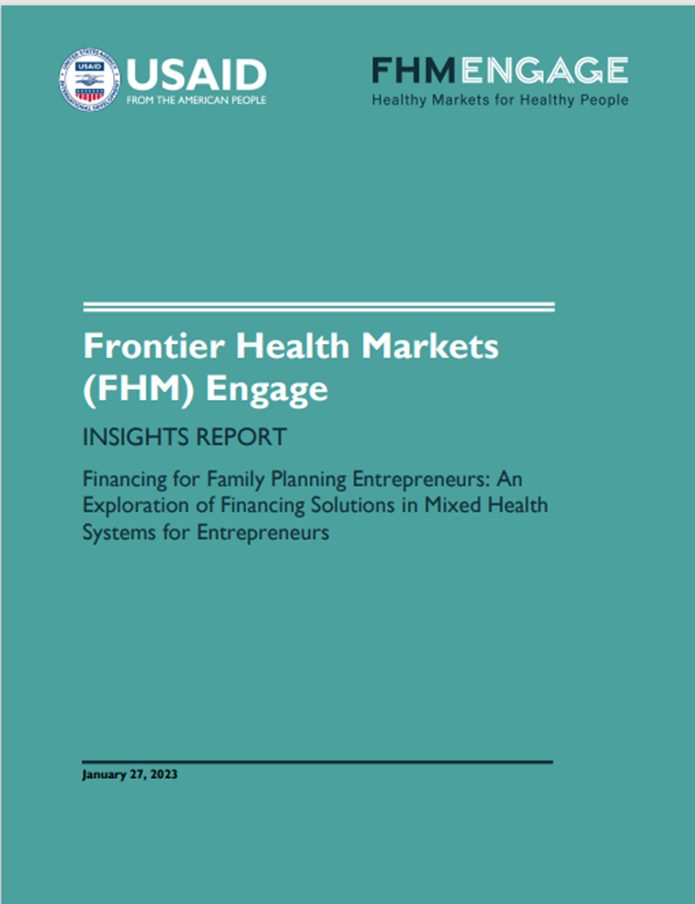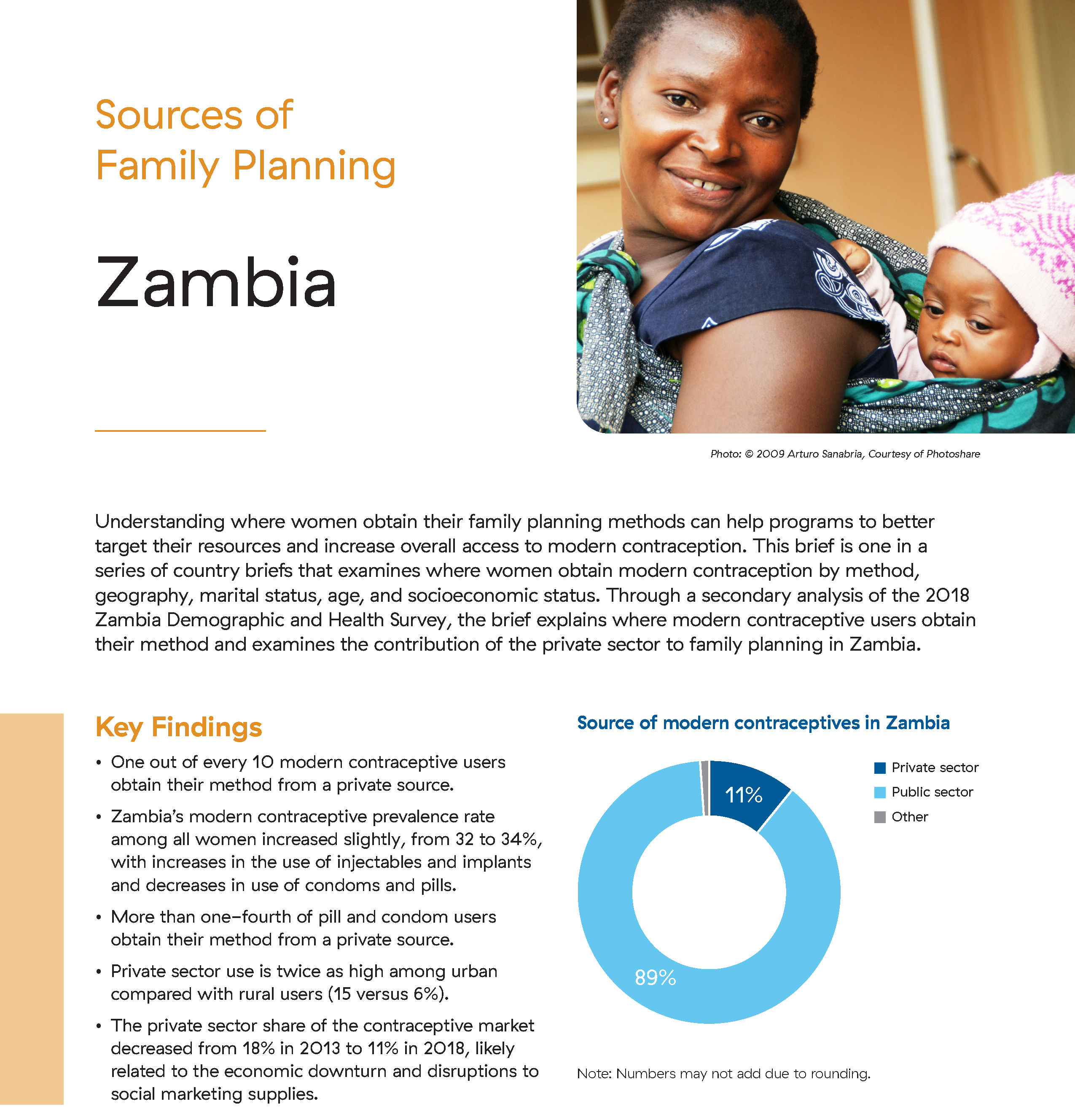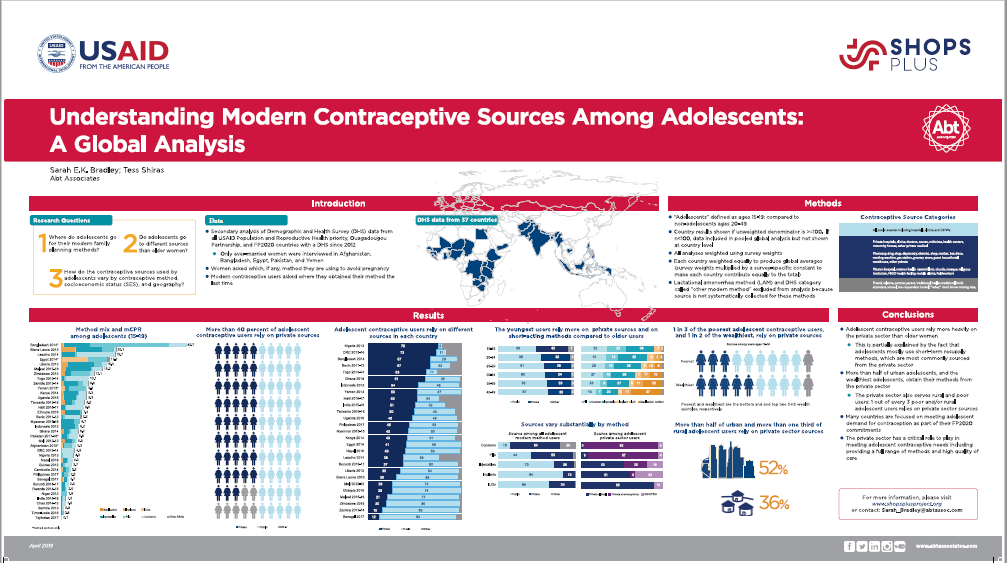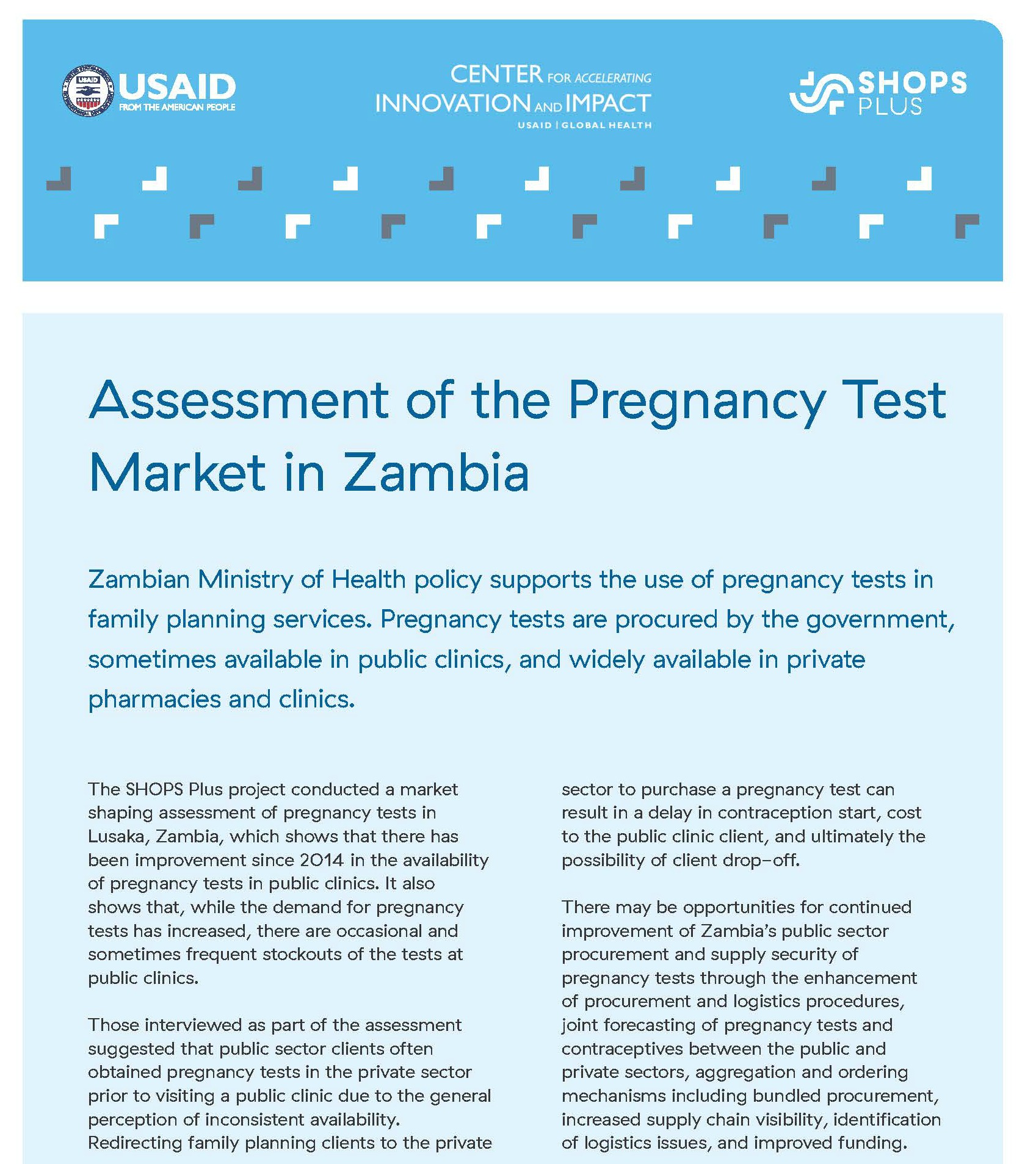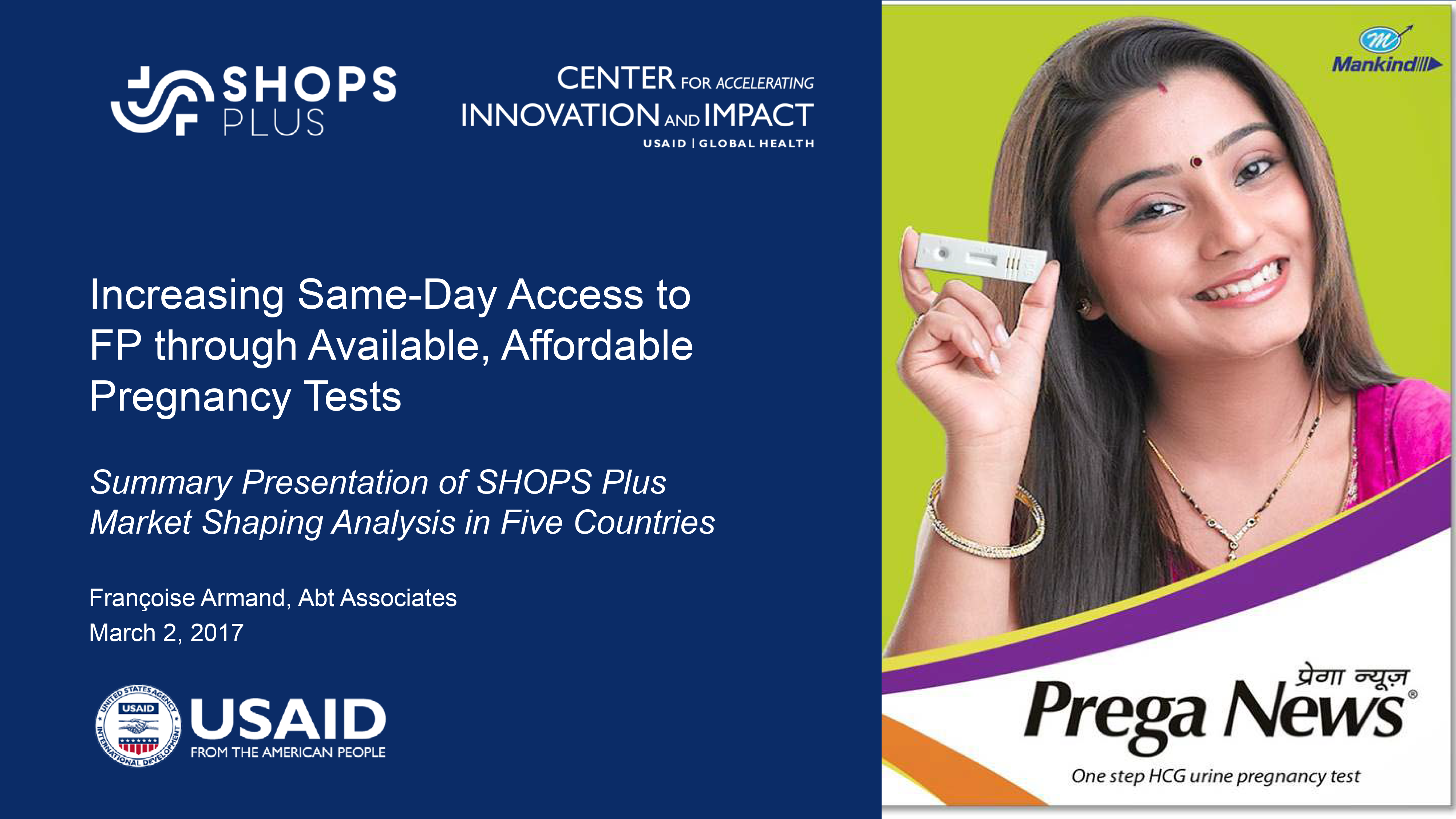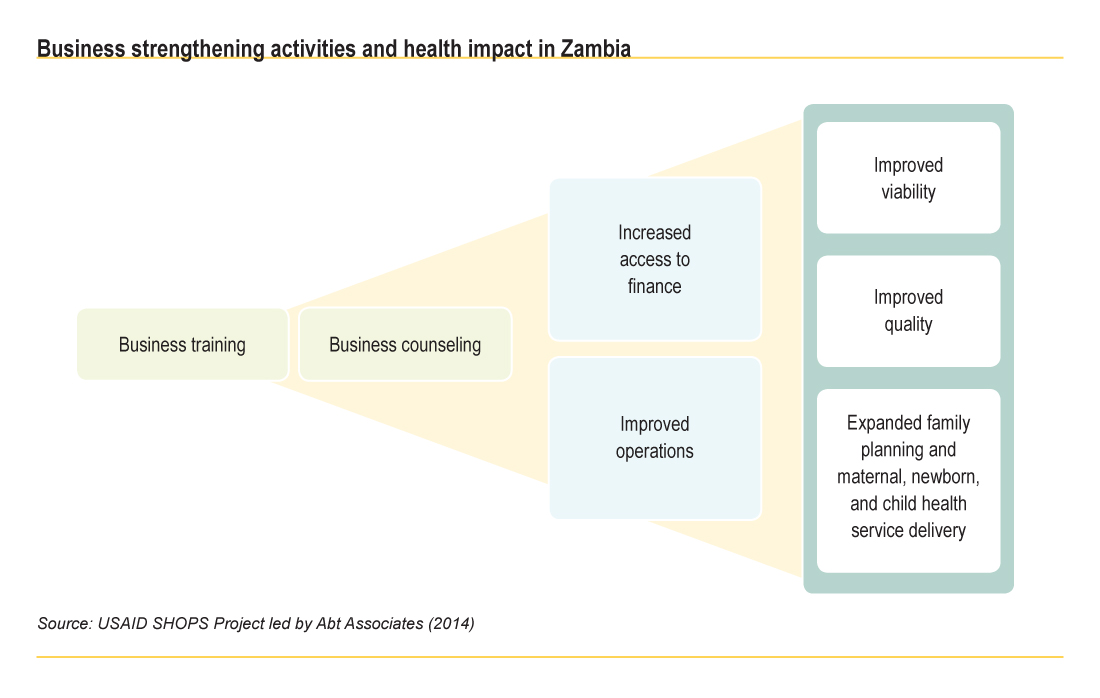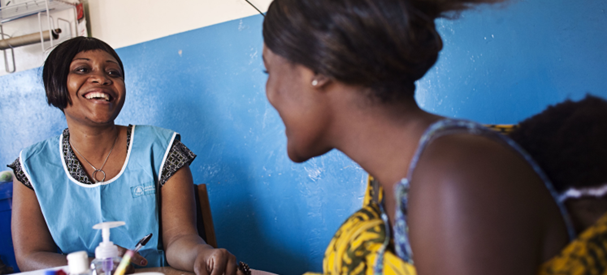
Healthy Markets CoP Session - Zambia - August 2024
The August session of the Healthy Markets Community of Practice (HMCoP) focused on the family planning (FP) and sexual reproductive health SRH) market in Zambia. The session included presentations from Zambia Accessible Markets for Health (ZamHealth), Planned Parenthood of Zambia, Marie Stopes Zambia, World Vasectomy Day, Pharmaceutical Society of Zambia, and Zenysis Technologies, with concluding remarks by USAID Zambia.
Dr. Lucy Nyundo from ZamHealth provided an overview of the FP/SRH market, highlighting the challenges and potential opportunities in Zambia. Zenysis Technologies presented their Zambia Health Analytics Platform, initiated by the FHM Engage project and shared plans for ZamHealth to further implementation in-country.
We want to thank the team at Zenysis Technologies for all organizing this meeting and USAID Zambia Family Planning Advisor Loyce Munthali for her participation and concluding remarks.
We extend our gratitude to everyone who participated in this session, with special appreciation for those who dedicated their time to present.
The Zambia meeting featured the following speakers:
Kuyosh Kadirov, Health Development Officer at USAID: Opening Remarks

Dr. Lucy Nyundo, Director- Private Sector Engagement Unit for ZamHealth, USAID Zambia Accessible Markets for Health Project: Dr. Nyundo provided an overview of the FP and SRH market in Zambia. This project is working to improve the capacity of the private sector to sustainably deliver high-quality products, services and information. ZamHealth targets market inefficiencies and market intelligence and data gaps to increase private sector participation in the FP/SRH market.

Sitabiso Moyo, Programmes Officer - Youth and Governance for Planned Parenthood of Zambia (PPAZ), An Overview of the PPAZ Service Delivery Model: Mr. Moyo briefly covered PPAZ's approach in Zambia covering their stakeholders, service delivery model, as well as services and tools utilized in their programming. PPAZ provides services in eight key areas including contraception, gynecology, and gender-based violence. PPAZ has also begun to offer digital and youth-dedicated services.

Likando Songolo, Director of Programmes for Marie Stopes Zambia (MSZ), Overview of Marie Stopes in Zambia: Mr. Songolo spoke on MSZ's approach in Zambia through the lens of its 2030 strategy. He focused on providing an overview of its 3 Access Pillars for sustainable service provision. These include 1) leave no one behind, 2) diversifying services at MSZ centers, and 3) double SRHR impact through social marketing sales. MSZ shared that it has recently expanded its services to ten provinces to increase services for rural populations. MSZ also distributes high-quality drugs to 600 pharmacies across the country.

Sheila Gabeya, Program Director - Africa for World Vasectomy Day (WVD),
A Programmatic Overview of WVD: Ms. Gabeya focused on key WVD interventions which include An Act of Love Campaign, Doctor Training, Responsible Men's Club (RMC), Young People for Health (YPH), and Media Workshops for Young Filmmakers. WVD is a unique organization focusing on increasing male engagement in FP/SRH. A key intervention is to increase vasectomies and highlight the importance of men in improving maternal and child health. WVD also runs a resource center that provides education, awareness, and provides male-focused family planning services.

Zanga Musakuzi, represented the Pharmaceutical Society of Zambia (PSZ),
An Introduction to the Pharmaceutical Society of Zambia: Mr. Musakuzi gave an overview of the tools and resources that PSZ provides. PSZ represents pharmacy professionals across Zambia and plays a key role in advocacy, education, and maintaining standards. PSZ provides contraceptive guidelines and protocols, access to FP/SRH commodities, and FP/SRH training for pharmacy professionals. PSZ's private sector engagement work focuses on community outreach and expanding pharmacy-based SRH services.

Kaluba Mataka, Regional Director of Delivery for Zenysis Technologies, Using the Zambia Health Analytics Platform (ZHAP) as a Market Intelligence Tool: Ms. Mataka gave an overview of Zenysis and introduced its digital platform. The platform works to integrate fragmented public and private sector data into a single platform to aid in data use and analytics to support data-driven decision-making. As a part of Frontier Health Markets (FHM) Engage Zenysis used the Zambia Health Analytics Platform (ZHAP) to access and integrate public and private sector FP data to support cross-sector FP decision-making.

Aaron Mutinta, Technical Advisor - Program Services for Zenysis, Using the Zambia Health Analytics Platform (ZHAP) as a Market Intelligence Tool: Mr. Mutinta gave a demonstration of the ZHAP platform and illustrated how users can explore market data, develop analysis, and generate insights. The tool allows users to add data from multiple sources and apply filters to obtain detailed analysis as well as graphics. This analysis then creates a dashboard that can provide a snapshot of the market landscape across actors.

Loyce Munthali, Family Planning Advisor at USAID Zambia: Concluding Remarks

Resources
In case you missed it on August 22, Reproductive Health Supplies Coalition (RHSC) hosted a webinar titled 'What's Big? What's Ahead? The Contraceptive Social Marketing Statistics Report Takes Stock and Looks to the Future'. You can watch the recording here.
Check out this set of resources from MOMENTUM County and Global Leadership (MCGL).
You can also watch their presentation on Demystifying the Complexities of Private Sector Engagement in Public Purchasing Programs for the Provision of Family Planning Services. You can access the full slides here.
Future Meetings and More
Coming Up:
September- Sierra Leone
October- Malawi
November/December- Pharmacy & Drug Shops
More Information:
On the USAID Health Market Links website, managed by FHM Engage, you can find past session recordings, slide decks, or revisit past newsletters. See the HMCoP page here: Healthy Markets CoP | FHM Engage (healthmarketlinks.org). If you have questions or would like to make us aware of an organization or project to feature, please email Elizabeth Peña at (epena@FHM-Engage.org) or Farhan Yusuf (fyusuf@r4d.org).
Banner image: A health worker speaks with a patient at a DFID-UK supported Marie Stopes International (MSI) family planning center in Zambia. Credit: Charlie Shoemaker/MSI. Source: USAID flickr.
Recent Highlights
-
Written by :
-
Published on : 22-Sep-24
- Highlight Type : Event
- Country :
- Project : FHM Engage
- Language : English

Resource Library
INSIGHTS REPORT Financing for Family Planning Entrepreneurs: An Exploration of Financing Solutions in Mixed Health Systems for Entrepreneurs
Resource Type : Report
Country : Democratic Republic of Congo, India, Kenya, Pakistan, Senegal, Zambia
Year : 2023-07-25T18:37:36
Language : English
Project : FHM Engage

Resource Library
Sources of Family Planning: Zambia
Understanding where women obtain their family planning methods can help programs to better target their resources and increase overall access to modern contraception. This brief is one in a series of country briefs that examines where women obtain modern contraception by method, geography, age, and socioeconomic status. Through a secondary analysis of the 2018 Zambia Demographic and Health Survey, the brief explains where modern contraceptive users obtain their method and examines the contribution of the private sector to family planning in Zambia.
Resource Type : Brief
Country : Zambia
Year : 2021-08-31T12:00:00
Language : English
Project : SHOPS Plus

Resource Library
Sources for Sick Child Care in Zambia (Presentation)
The public sector is the dominant source of care in Zambia. Understanding if and where sick children are taken for care is critical to improve case management interventions. This brief presents a secondary analysis of the 2018–19 Zambia Demographic and Health Survey to examine where treatment or advice is sought for sick children who experienced at least one of three treatable illnesses: fever, acute respiratory infection, or diarrhea. These illnesses represent some of the leading causes of death in children under five years old.
Resource Type : Presentation
Country : Zambia
Year : 2020-06-30T16:42:00
Language : English
Project : SHOPS Plus

Resource Library
Sources for Sick Child Care in Zambia
The public sector is the dominant source of care in Zambia. Understanding if and where sick children are taken for care is critical to improve case management interventions. This brief presents a secondary analysis of the 2018–19 Zambia Demographic and Health Survey to examine where treatment or advice is sought for sick children who experienced at least one of three treatable illnesses: fever, acute respiratory infection, or diarrhea. These illnesses represent some of the leading causes of death in children under five years old.
Resource Type : Brief
Country : Zambia
Year : 2020-07-01T10:30:00
Language : English
Project : SHOPS Plus

Resource Library
Understanding Modern Contraceptive Sources Among Adolescents: A Global Analysis
The unique contraceptive needs of adolescents are increasingly recognized among the global family planning community. Recent reports on adolescent contraception emphasize the need for high-quality data to inform efforts to increase adolescent contraceptive use, access, and choice. SHOPS Plus conducted a secondary analysis of Demographic and Health Survey data in 37 countries to examine where adolescents obtain their contraceptives, and how sources vary by method and socioeconomic status. The results elucidate the important role that the private sector plays in helping adolescents meet their reproductive intentions: on average, 40 percent of adolescent users rely on private sector sources, with substantial variation by country. Private sector reliance is higher among urban and wealthy adolescents, but the private sector also serves 1 in 3 poor and/or rural adolescent users. Policymakers and program implementers must include the private sector in efforts to successfully meet contraceptive demand and increase access among youth.
This poster was presented by Sarah Bradley at the Population Association of America Annual Meeting on April 11, 2019 in Austin, TX.
Resource Type : Presentation
Country : Bangladesh, Benin, Ethiopia, Ghana, Haiti, India, Kenya, Malawi, Mali, Nepal, Nigeria, Pakistan, Philippines, Rwanda, Sénégal, Senegal, Tanzania, Uganda, Zambia, Zimbabwe
Year : 2019-07-25T14:54:22
Language : English
Project : SHOPS Plus

Resource Library
Assessment of the Pregnancy Test Market in Zambia
The SHOPS Plus project conducted a market shaping assessment of pregnancy tests in Lusaka, Zambia, which shows that there has been improvement since 2014 in the availability of pregnancy tests in public clinics. It also shows that, while the demand for pregnancy tests has increased, there are occasional and sometimes frequent stockouts of the tests at public clinics.
Resource Type : Brief
Country : Zambia
Year :
Language : English
Project : SHOPS Plus

Resource Library
Increasing Same-Day Access to FP through Available, Affordable Pregnancy Tests
This summary presentation examines the market shaping analysis SHOPS Plus conducted in five countries. Studies conducted in Zambia and Madagascar suggest that increasing access to pregnancy tests can improve same-day initiation of family planning. This study aimed to identify opportunities to improve access to family planning services by using a market shaping approach to increase the use of pregnancy tests.
Resource Type : Presentation
Country :
Year :
Language : English
Project : SHOPS Plus

Resource Library

Advancing Knowledge to Inform Program Design
Minki Chatterji, research director for the SHOPS project, oversees the project’s research portfolio, which includes global research, process and impact evaluations, formative research, provider censuses, and qualitative behavioral research. A demographer by training, she has more than 10 years of experience in global health research, including work on family planning and reproductive health, HIV and AIDS, and maternal and child health. In this video, Chatterji discusses the range of SHOPS research and how the project incorporates its research into its programs.
Resource Type : Video
Country : Bangladesh, Benin, Bolivia, Botswana, Ethiopia, Ghana, Haiti, India, Jamaica, Jordan, Kenya, Madagascar, Malawi, Mali, Namibia, Nepal, Pakistan, Paraguay, Peru, Philippines, Russia, Sénégal, Senegal, South Africa, Tanzania, UAR, Uganda, Zambia, Zimbabwe
Year : 2015-04-15T12:00:00
Language : English
Project : SHOPS

Resource Library
Zambia Program Profile
The SHOPS project implemented a four-year program funded by the United States Agency for International Development (October 2010 to December 2013) in Zambia that had two objectives: (1) strengthen the delivery of family planning and reproductive health, and maternal, newborn, and child health services through the private sector by addressing business constraints; and (2) increase the number of new health workers in Zambia to address the HIV and AIDS epidemic and other public health issues by strengthening private pre-service education. This profile presents the goals, components, results, and the following lessons learned from the SHOPS program in Zambia:
- Additional work is needed to promote lending to the health sector.
- Economic and financial factors affected lending to private providers.
- Business counseling is an important tool to reinforce training.
- Creating a sustainable market for business training and counseling services takes time.
- Strengthening the business operations of private medical training institutes can lead to an increase in student enrollment.
- Lack of student finance in Zambia is a constraint to the growth of private medical training institutes.
- Private providers need to advocate for their interests.
- Linkages between the private sector and public health initiatives in Zambia are needed.
Resource Type : Report
Country : Zambia
Year : 2014-12-22T00:00:00
Language : English
Project : SHOPS
Pagination
- Page 1
- Next page



